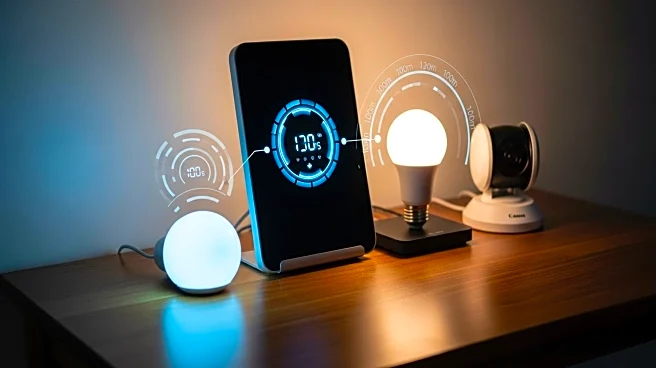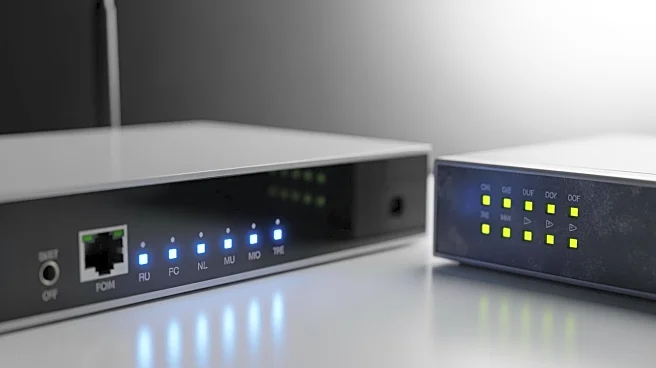What is the story about?
What's Happening?
Smart home technology is revolutionizing the way homeowners interact with their living spaces by integrating internet-connected devices that allow for remote monitoring and management of various home systems. These systems, often part of the Internet of Things (IoT), include smart TVs, thermostats, door locks, kitchen appliances, and lighting systems. The technology provides security, comfort, convenience, and energy efficiency, enabling homeowners to control devices through apps on smartphones or other networked devices. The integration of smart home systems allows for automated actions based on user preferences, enhancing the overall living experience.
Why It's Important?
The adoption of smart home technology is significant as it offers numerous benefits, including improved security through remote monitoring, energy efficiency by optimizing resource usage, and enhanced convenience by automating daily tasks. This technology can lead to cost savings for homeowners by reducing energy consumption and providing peace of mind through advanced security features. Additionally, smart home systems can support independent living for seniors by enabling remote health monitoring, thus addressing challenges in the healthcare sector. The growing popularity of smart homes reflects a shift towards more sustainable and efficient living environments.
What's Next?
As smart home technology continues to evolve, we can expect further integration with emerging technologies such as artificial intelligence and machine learning, which will enhance the ability of smart systems to adapt to user behaviors and preferences. The development of interoperability standards like Matter will facilitate seamless communication between devices from different manufacturers, expanding the possibilities for smart home automation. Additionally, advancements in data security and privacy measures will be crucial to address concerns related to unauthorized access and data protection, ensuring the safe and reliable use of smart home systems.
Beyond the Headlines
The widespread adoption of smart home technology raises ethical and legal considerations, particularly regarding data privacy and security. As these systems collect and share personal data, it is essential to establish clear guidelines and regulations to protect consumer information. Furthermore, the integration of smart home technology into everyday life may lead to cultural shifts, as individuals become more reliant on technology for managing their living environments. This reliance could impact social interactions and lifestyle choices, highlighting the need for a balanced approach to technology use.














